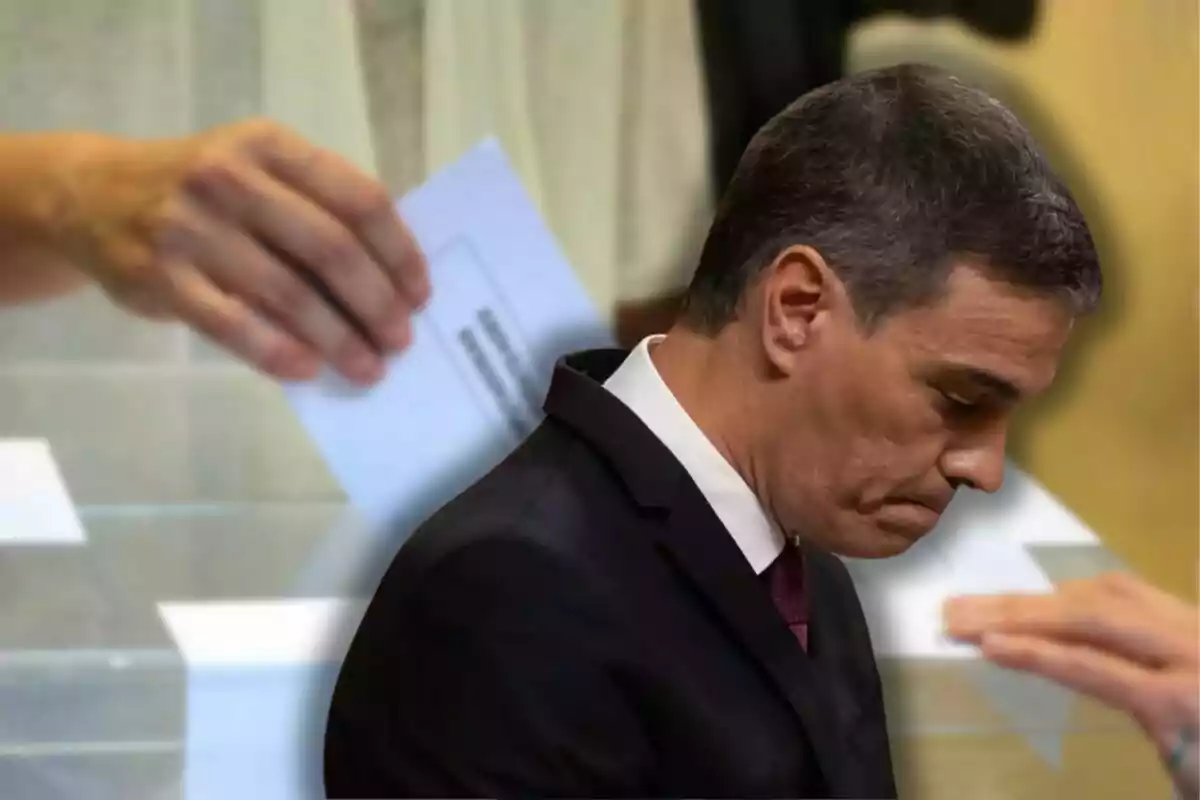
Pedro Sánchez is on the verge of disaster in the polls.
Some polls place PSOE below 100 deputies
The latest elections set 120 deputies as PSOE's line of resistance. One seat more or less, the Socialists marked this number as key to keep alive hopes of stopping the right and far-right. The first polls after the revelation of the UCO report on Santos Cerdán show an uncertain and bleak outlook for President Pedro Sánchez.
The Socialists not only fail to keep themselves at the 120-seat threshold, but they could even fall below one hundred. PSOE's worst result in a general election was in 2016, when President Pedro Sánchez obtained 5.4 million votes and 85 deputies.
An NC Report poll for La Razón places PSOE at 105/107 seats. A similar result to the 108/110 seats given to them next weekend by the Target Point poll for El Debate. The most catastrophic estimate came from the Electomanía poll, which this Sunday predicted 98 seats for the Socialists.
The dire forecasts for PSOE, together with the collapse of their partners, especially Sumar, leave the left in ruins. These would be the worst results in history for the left and the nationalists. The estimates show a clear change in the political cycle.
The collapse of the left contrasts with the surge of PP and Vox. Feijóo's party is moving between 150 and 160 seats, while Abascal's could break the 50-seat barrier. These results advise President Pedro Sánchez against calling elections and reaffirm his strategy to hold out until 2027.
End of cycle for PSOE
The closest was José Luis Rodríguez Zapatero, who in 2004 obtained 164 deputies, and in 2008 achieved 169. That preceded the negative cycle that led Alfredo Pérez Rubalcaba to PSOE's worst results in history, with 110 seats. President Pedro Sánchez managed to do even worse, with the 91 seats obtained in 2015.
It should be noted that the 2015 elections were the first conditioned by the breakdown of bipartisanship, with the emergence of parties like Podemos and Ciudadanos. In 2016, Pablo Iglesias's surge left the Socialists with a historic result of 85 deputies.
President Pedro Sánchez himself then began a comeback that took him to 123 in April 2019. Sánchez managed to keep that result in the next elections, with 120 in November 2019 and 121 in 2023. The drop below 100, as shown by the polls, clearly indicates an end of the Sánchez era.
Talking about elections is out of the question
After the Santos Cerdán crisis, Sánchez considered the possibility of bringing elections forward. On one hand, there was the precedent of 2023, when he brought the general elections forward after the debacle in the regional and municipal elections, and it worked out well for him. On the other hand, there is the pressure from the regional leaders, who are asking him to bring forward the general elections to avoid them coinciding with the regional and municipal elections in 2027.
In recent days he has changed his mind and has made it clear to those around him that talking about elections is out of the question. Despite his complicated position, PSOE's leader knows that the critics don't have enough strength to rebel. Above all, the polls arriving at Ferraz advise against going to the polls right now.
Sánchez knows that elections in this situation would lead PSOE to disaster and would force him to resign as secretary general. This crisis isn't about the continuity of the Government, but about the internal struggle within PSOE. Right now, Sánchez's only focus is to hold out.
More posts: